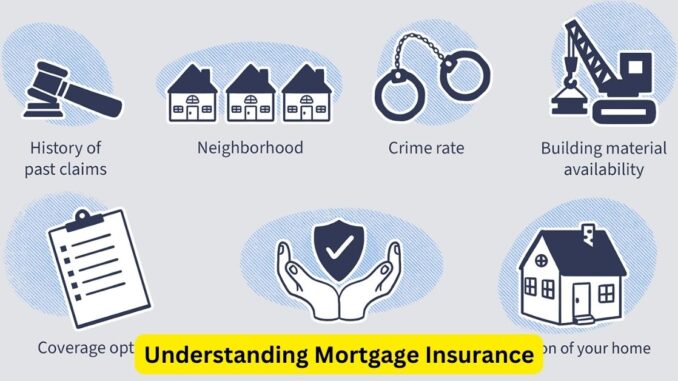
Mortgage insurance serves as a protective measure for lenders, safeguarding them against borrower default in cases where the down payment is less than 20% of the home’s purchase price. Understanding the different types and implications of mortgage insurance is crucial for prospective homebuyers.
Types of Mortgage Insurance:
- Private Mortgage Insurance (PMI): Typically required for conventional loans with down payments less than 20%, PMI protects the lender if the borrower defaults on the loan. Borrowers pay a monthly premium, often until the loan-to-value ratio reaches 78% through regular payments or home value appreciation.
- FHA Mortgage Insurance Premium (MIP): FHA loans, insured by the Federal Housing Administration, require an upfront premium at closing and an annual premium paid monthly. MIP provides similar protection to PMI, allowing borrowers with lower credit scores or smaller down payments to qualify for loans.
- USDA Mortgage Insurance: For USDA loans, guaranteed by the U.S. Department of Agriculture, borrowers pay an upfront guarantee fee and an annual fee. This insurance protects the lender in case of default on loans offered to rural and suburban homebuyers with limited incomes.
Key Considerations:
- Costs and Premiums: PMI costs vary depending on factors like credit score, down payment, and loan amount. Upfront premiums for FHA and USDA loans are one-time payments, while ongoing annual premiums add to borrowers’ monthly expenses.
- Cancellation Policies: PMI automatically terminates once the loan-to-value ratio reaches 78% based on the initial property value, but borrowers can request its cancellation at 80% LTV. FHA loans have MIP for the life of the loan, unless a substantial down payment is made.
- Impact on Borrowers: Mortgage insurance premiums increase monthly payments, affecting borrowers’ overall affordability. Understanding these costs is vital when budgeting for a home purchase.
- Credit Score Influence: Credit scores significantly impact the cost of mortgage insurance. Higher scores often result in lower premiums, emphasizing the importance of maintaining good credit.
Benefits and Considerations for Homebuyers:
- Access to Homeownership: Mortgage insurance enables borrowers with smaller down payments to qualify for loans, expanding homeownership opportunities.
- Protecting Lenders: While it adds to the borrower’s expenses, mortgage insurance mitigates risk for lenders, encouraging them to approve loans for individuals with less-than-ideal down payments.
- Cost vs. Benefit Analysis: Consider whether the benefit of purchasing a home sooner with a smaller down payment outweighs the additional cost of mortgage insurance premiums.
Understanding the nuances of mortgage insurance empowers homebuyers to make informed decisions about loan types, down payments, and overall affordability. Consulting with lenders and exploring various loan options helps navigate the complexities of mortgage insurance, ensuring a well-informed and financially sound home purchase.
Leave a Reply